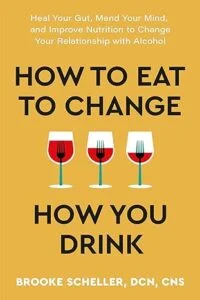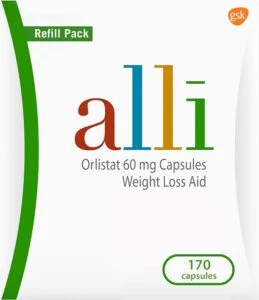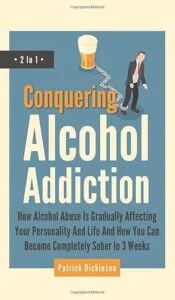
The relationship between alcohol and diet is a topic that deserves to be thoroughly understood, especially for those interested in weight loss. Alcohol, being a source of empty calories and potentially disruptive to metabolic processes, can have a significant impact on dietary efforts. The central premise of this article is to explore whether alcohol consumption and a diet aimed at weight loss are really incompatible.
Alcohol and diet
Numerous studies have indicated that alcohol can interfere with the body’s ability to burn fat, which is a key factor in any weight loss regimen. Additionally, regular consumption of alcoholic beverages can negatively affect sleep quality and liver function, both crucial for a healthy metabolism. These interferences suggest that alcohol could be a considerable obstacle on the path to effective weight loss.
Throughout this article, we will explore several essential questions: How does alcohol affect metabolism? What impact does it have on daily calorie balance? Are there differences in the effects of moderate consumption versus excessive consumption? And most importantly, is it possible to find a balance that allows you to enjoy the occasional drink without compromising your weight loss goals?
Understanding these dynamics is crucial to making informed decisions about alcohol consumption while dieting. By the end of this read, it is hoped that readers will have a clearer view on how to manage their alcohol intake in a way that does not harm their weight loss efforts.
How to Eat to Change How You Drink: Heal Your Gut, Mend Your Mind, and Improve Nutrition to Change Your Relationship with Alcohol
Trapped in alcohol’s addictive grip, Dr. Brooke Scheller wanted a way out. For her, total sobriety was the answer to her problem, which she achieved by applying her skills as a doctor of nutrition, pairing her knowledge of nutrition with other integrative therapies to eliminate alcohol for good. Seeing the success in herself, she shifted her practice to help inspire others to explore a lifestyle with little to no alcohol.
How to Eat to Change How You Drink is a revolutionary guide to leverage food and nutrition to reduce or eliminate alcohol consumption, develop mindfulness, and promote a healthier relationship with alcohol.
Working through the book, readers will identify their drinking archetype and then learn the types of nutritional changes they can make to reduce alcohol cravings alongside behavior modification;
they’ll learn how alcohol affects their nutritional status and can contribute to health symptoms ranging from fatigue, to hormonal imbalances, digestive irregularities, weight gain, thyroid disorders, autoimmune diseases and more; and they’ll restore their nutritional status and repair key body systems after moderate to heavy alcohol consumption.

Empty Calories in alcohol and diet: What is Alcohol and How Does It Affect Weight?
The term «empty calories» refers to those calories that, although they provide energy, do not provide essential nutrients such as vitamins, minerals or fiber. Alcohol is a clear example of this type of calories. When alcohol is consumed, the body gains energy without the nutritional benefits obtained from other foods. This can have a significant impact on body weight and the effectiveness of a diet designed for weight loss.
The number of calories in alcoholic beverages varies considerably depending on the type of drink. For example, a glass of red wine (approximately 150 ml) contains around 125 calories, while a standard beer (350 ml) can have between 150 and 200 calories. Distilled beverages such as whiskey, vodka or tequila contain approximately 97 calories per 44 ml. If mixers such as juices or sodas are added, the calorie count can increase significantly.
Alcohol and diet: weight gain
Frequent alcohol consumption can lead to weight gain not only because of the empty calories it provides, but also because it can interfere with metabolism. Alcohol can affect the way the body burns fat. When consumed, the body prioritizes the metabolization of alcohol over other nutrients, which can slow the burning of fats and carbohydrates.
Additionally, alcohol consumption can increase appetite and decrease inhibition, leading to overeating or less healthy food choices (we’ll discuss this in detail below). Also, I don’t know if it happens to you too, but when I drink beer, it’s as if those extra calories have a preference for settling in my belly. Here I leave you a natural supplement that helps remove that new fat that accumulates in the belly:
It is crucial to be aware of the amount of calories you ingest through alcohol, especially when following a weight loss diet. Limiting alcoholic beverage consumption may be an effective strategy to reduce total caloric intake and improve weight loss results. Additionally, opting for lower-calorie beverage options or diluting them with water or sugar-free soft drinks can help control caloric intake without completely giving up alcohol consumption.
The Science of Drinking: How Alcohol Affects Your Body and Mind
Scientific research has clearly established that drinking in moderation has many health benefits, including maintaining a healthy heart. Yet, many people do not know that drinking red wine protects the heart more than white wine, while beer, margaritas, and hard liquor are less effective in providing such protection.
And while alcoholism is a serious problem requiring medical and psychological treatment, for those who are not addicted, drinking alcohol is not necessarily a bad habit.
The problem is to distinguish between drinking sensibly and drinking insensibly. Dasgupta clearly outlines what constitutes healthy drinking and its attendant health benefits, offers advice on how to drink responsibly, and provides insight into just how alcohol works on the brain and the body. After reading this book, readers will enjoy their next drink with a fuller and safer understanding of why they’re enjoying it.

Alcohol and diet: Alcohol Metabolism and Its Effect on the Body
Alcohol metabolism is a complex process that involves several body systems, with the liver being the main protagonist. When alcohol is consumed, the body prioritizes its elimination due to its toxic nature. The liver converts ethanol into acetaldehyde, a highly toxic and potentially carcinogenic substance, which is then transformed into acetate, a less harmful substance that breaks down into water and carbon dioxide. This process requires the action of specific enzymes, such as alcohol dehydrogenase (ADH) and aldehyde dehydrogenase (ALDH).
The main problem is that the liver cannot metabolize fat and alcohol at the same time. Because the body considers alcohol a toxic substance, it prioritizes its metabolism over other processes, including fat oxidation. In other words, when alcohol is consumed, fat burning temporarily stops until the alcohol is eliminated from the system. This phenomenon can make weight loss difficult, since the body stores calories from fats and carbohydrates as body fat.
In addition, alcohol contains empty calories, that is, calories that do not provide essential nutrients. For example, a glass of wine contains approximately 120 calories, while a beer can have between 150 and 200 calories. These extra calories can add up quickly, contributing to weight gain if not controlled properly. It is also important to note that excessive alcohol consumption can lead to a fatty liver, a condition that negatively affects liver function and can further complicate weight loss.

alli Diet Weight Loss Supplement Pills, Orlistat 60Mg Capsules, 170 Count
- alli is an FDA approved weight loss supplement that helps block about 25 percent of the fat you eat from being absorbed
- Acts as an effective weight loss product and diet pill for both women and men
- For every 5 pounds you lose through diet and exercise, alli can help you lose 2 to 3 more
- alli weight loss supplement works in the digestive tract and is minimally absorbed into the bloodstream, so there are no direct effects on the cardiovascular or central nervous system
- alli capsules are a weight loss pill for overweight adults, 18 years and older, when used along with a reduced calorie and low fat diet
alli Diet Weight Loss Supplement Pills, Orlistat 60Mg Capsules, 170 Count
Alcohol and its influence on dietary decisions
Alcohol consumption can have a significant impact on our ability to make healthy food choices. Various studies have shown that alcohol can impair self-control and lead to unhealthy food choices. An analysis published in the journal Appetite revealed that the consumption of alcoholic beverages is associated with an increase in caloric intake, mainly due to a greater propensity to consume foods rich in fats and sugars.
Alcohol affects the brain in various ways, including inhibiting the prefrontal cortex, which is responsible for rational decision making and self-control. When this area of the brain is compromised, people are more likely to give in to cravings and opt for foods of low nutritional quality. A study by the University of Liverpool found that even a moderate amount of alcohol can significantly reduce eating self-control.
Personally, alcohol is not something that I particularly like (in fact, I don’t like) but, I recognize that in social gatherings and aperitifs, we all like to drink a beer or a wine, the bad thing is that later the stomach can suffer and digestion can become very heavy, so Don’t let that happen to you, I recommend these capsules that work great when your belly starts to swell due to gas:
Enzymedica Digest Gold + ATPro, Maximum Strength, Fast-Acting, Helps Digest Large Meals, Prevents Bloating and Gas, 180 Count (FFP)
For Food Lovers: Savor your favorite dishes worry-free; Our full-strength, bloat-busting digestive enzyme blend helps break down large meals faster, easing bloating and occasional indigestion for care-free indulgence*
ATPro Blend: Beat the post-meal blues and feel fueled with energy to power through your day; This unique formula features ATPro, a proprietary blend of ATP, Magnesium Citrate, Phytase and CoQ10 that helps fuel your body’s cells*
Effective All the Way Through: Our proprietary Thera-blend enzymes are formulated for optimal activity throughout the digestive system’s varying pH levels, providing faster relief and maximum digestive support*
Dosage: Just 1 capsule daily breaks down up to 34g fat, 16g protein and 86g carbs; Contains no gluten, milk, casein, soy, egg, artificial colors, flavors, or GMOs; Vegan, Kosher and Clean Label Project Certified
Making a Difference: Enzymedica products harness the power of the finest natural ingredients for maximum effectiveness; We create quality products without compromise while championing initiatives that support the well-being of people and our planet

In addition to affecting self-control, alcohol can also increase appetite. The journal Obesity published research showing that alcohol consumption stimulates the production of ghrelin, a hormone that induces hunger. This increase in the appetite hormone can lead to excessive calorie consumption, making efforts to maintain a balanced and healthy diet even more difficult.
A practical example of this influence can be seen in social settings, such as dinner parties and gatherings, where alcohol consumption is common. In such situations, people tend to consume more food and make less healthy choices, such as opting for fried snacks or sugary desserts. Not only does this increase your daily caloric intake, but it can also sabotage weight loss goals.
Obviously we could conclude that alcohol consumption can have a detrimental effect on dietary decisions. For those looking to lose weight or maintain a healthy diet, it is crucial to be aware of these effects and consider limiting alcohol consumption to avoid unhealthy food choices. And in case you still have doubts…..
Here I leave you a table with the calories of alcohol.
Conquering Alcohol Addiction 2 In 1: How Alcohol Abuse Is Gradually Affecting Your Personality And Life And How You Can Become Completely Sober In 3 Weeks
If you answered yes to any of these questions, keep reading.
We all know how dangerous alcohol abuse is, with its potential to destroy every aspect of our lives.
Despite that, alcohol dependency is extremely common.
Did you know that millions of people have an unhealthy relationship with alcohol, and many even die from it?
In fact, alcohol abuse kills up to 3 million people every year!
The good news is, you can improve your drinking habits and prevent or overcome alcohol addiction with the help of science.
If you want power over your drinking, you’ll find all the information you need to get started right here.
In this guide, you’ll discover:
- How an «addictive personality» can actually be a good thing
- How this one brain chemical causes alcohol addiction and how to use it for good instead
- How alcohol affects men and women differently and which addiction treatments work best for each
- Why drinking before bed actually makes your sleep worse and what you can do instead
- How this one simple habit can prevent alcohol addiction (anyone can do this without giving up alcohol completely)
…and much, much more!
Utilizing the most relevant research in health and addiction, this guide combines scientific facts with compassion and offers flexible solutions that anyone can use.
Even if you’ve been failed by AA or the advice of professionals, you can overcome your drinking problem and take back control starting today.
The key is in solutions that don’t force you to rely on willpower, feel guilty, or give up the things you love.
Arm yourself with the truth about alcohol and take control today by clicking «Add to Cart» right now!

